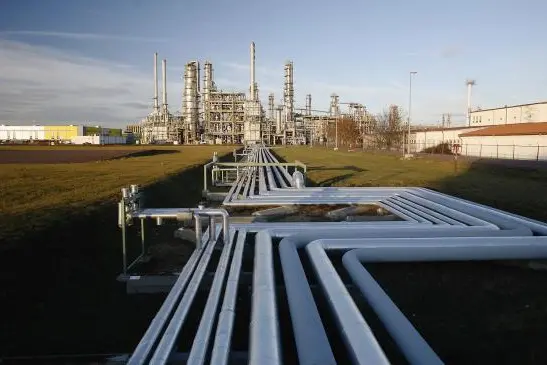PHOTO
- Trade deal hopes between the U.S. and China boost oil prices
- Stock markets around the globe advance on trade deal hopes
- Qatar’s stock market index rose 1.1 percent on Thursday
- Dollar, gold prices steady
Oil prices
Oil prices posted weekly gains for the second time in a row and closed on Friday at their highest level in 2019, but a rise in U.S. output limited gains.
Brent crude futures briefly reached $67.73 a barrel, their 2019 high. The global benchmark fell 5 cents to settle at $67.12 a barrel. Brent gained 1.2 percent on the week.
U.S. West Texas Intermediate (WTI) crude futures gained 30 cents to settle at $57.26 per barrel, after hitting $57.81 earlier on Friday, also their highest for the year. WTI recorded a 3-percent weekly rise and reached its strongest settlement price of 2019.
“Oil prices, as well as the stock market have been rising on the anticipation that China and the U.S. would agree to a trade deal,” Andy Lipow, president of Lipow Oil Associates in Houston, told Reuters
“In addition, we’re seeing a tightening of oil supplies around the world resulting from OPEC and non-OPEC production cuts.”
The Energy Information Administration said on Thursday that U.S. crude production last week climbed to a record 12 million barrels per day as stockpiles built for a fifth straight week to their highest since October 2017 and exports hit an all-time high.
Global markets
Major stock markets rose on Friday on hopes over a trade deal between the U.S. and China.
“Right now the downside risk has been not as steep but there’s always a concern that something happens last minute,” said Quincy Krosby, chief market strategist at Prudential Financial in Newark, New Jersey.
“Having a Chinese economy that stabilizes is constructive for global markets. That’s what is key in terms of the market looking at the results.”
On Wall Street, the Dow Jones Industrial Average rose 94.04 points, or 0.36 percent, to 25,944.67, the S&P 500 gained 8.93 points, or 0.32 percent, to 2,783.81 and the Nasdaq Composite added 38.17 points, or 0.51 percent, to 7,497.88.
MSCI’s broadest index of Asia-Pacific shares outside Japan closed 0.72 percent higher, while Japan’s Nikkei lost 0.18 percent.
Middle East markets
Qatar’s index rose sharply on Thursday with 15 out of 20 stocks advancing, to recover some of the losses incurred during February.
The Qatari index rose 1.1 percent as Qatar National Bank and Industries Qatar gained 2 percent and 1.9 percent respectively.
Saudi Arabia's index dropped 0.2 percent, with National Commercial Bank sliding 1.1 percent and Saudi Arabian Amiantit Company dropping 9.8 percent.
Dubai's index traded roughly flat, but real estate firms continued their gains with Emaar Properties rising 1.3 percent.
The Abu Dhabi index increased 0.7 percent with the country's largest lender First Abu Dhabi Bank rising 1.1 percent.
Egypt's blue-chip index EGX30 fell 0.4 percent as profit-taking pulled Commercial International Bank down 1.4 percent.
Kuwait’s premier market index added 0.4 percent, Bahrain and Oman’s indices ended the day mainly flat.
Currencies
The dollar was mainly flat on Friday as investors turned to equities.
The dollar index, which measures the greenback against a basket of six major currencies, was mainly unchanged at 96.618.
Precious metals
Gold prices were mainly unchanged on Friday.
Spot gold was little changed at $1,322.06 per ounce as of 1038 GMT and U.S. gold futures were up 0.1 percent at $1,329.1 per ounce.
(Reporting by Gerard Aoun; Editing by Mily Chakrabarty)
Our Standards: The Thomson Reuters Trust Principles
Disclaimer: This article is provided for informational purposes only. The content does not provide tax, legal or investment advice or opinion regarding the suitability, value or profitability of any particular security, portfolio or investment strategy. Read our full disclaimer policy here.
© ZAWYA 2019





















